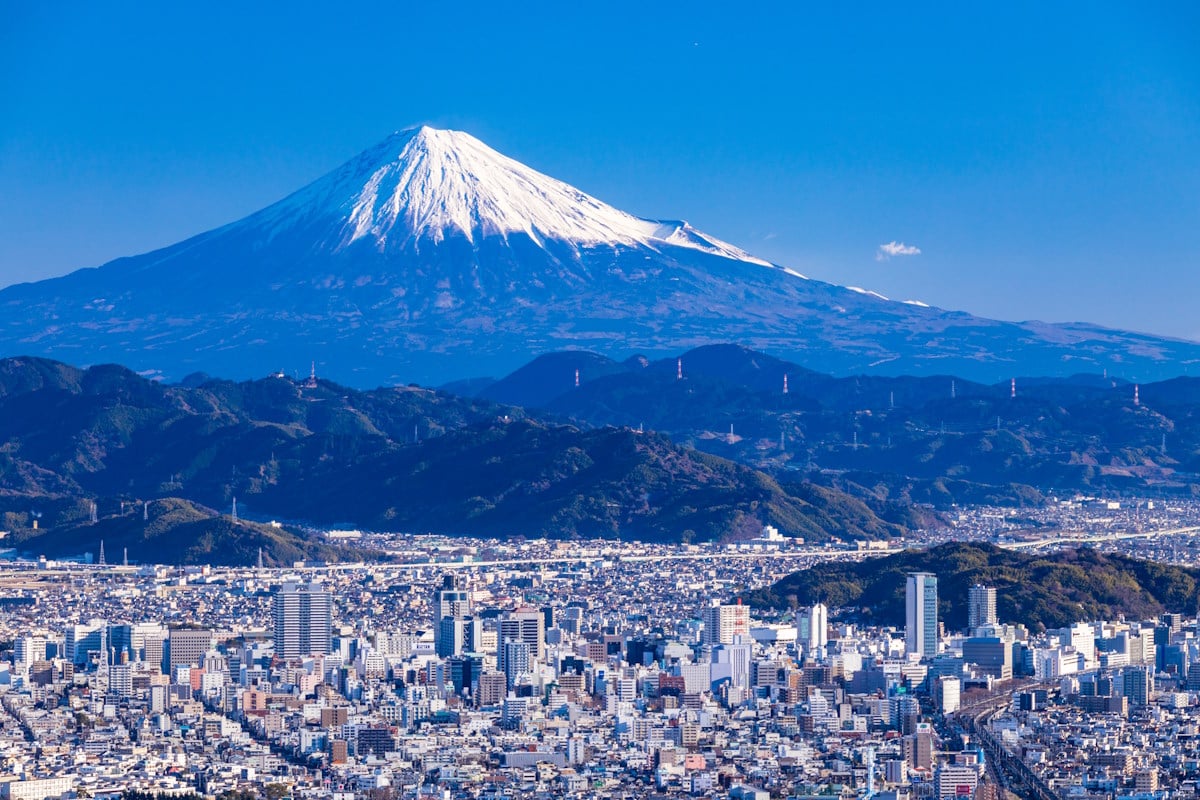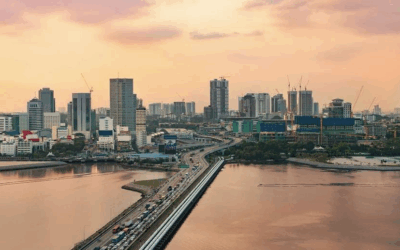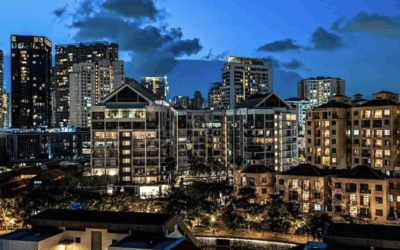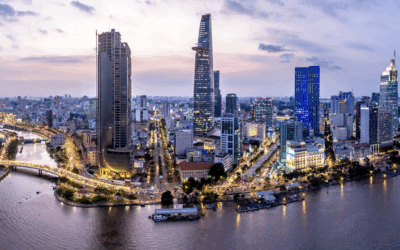Are you thinking about moving to Japan as a foreign expat?
Whether you’re drawn by its high quality of life or simply the allure of ramen, Japan offers a unique blend of modernity and tradition that’s hard to resist.
But before you pack your bags, there are several things you should know in order to make your transition smoother.
From navigating the work culture to buying a home, this guide will through the essentials of living in Japan.
What to Expect from Life in Japan
Japan is a country of contrasts. On one hand, it’s a technological wonderland where vending machines dispense hot meals and robots greet you at the airport.
On the other hand, it’s a land steeped in tradition, where ancient temples stand next to skyscrapers, and bowing is still a common form of greeting.
As an expat, you’ll find that Japan offers a high quality of life, but it’s not without its challenges.
Japan consistently ranks high in global quality of life indexes. With a GDP of $4.2 trillion and a per capita income of $33,800, it’s one of the world’s leading economies.
The country also boasts some of the best healthcare and safety standards globally, ranking 3rd for healthcare and 6th for safety.
Life expectancy in Japan is one of the highest in the world, at 84 years, which is a testament to the country’s healthy lifestyle and excellent healthcare system.
Japanese Culture Shock!
Despite the perks, Japan can be a tough nut to crack for expats. The work-hard-play-hard culture can be overwhelming, and the language barrier is real.
Only about 28% of the population speaks English at any level whatsoever, and less than 10% of Japanese people are fluent.
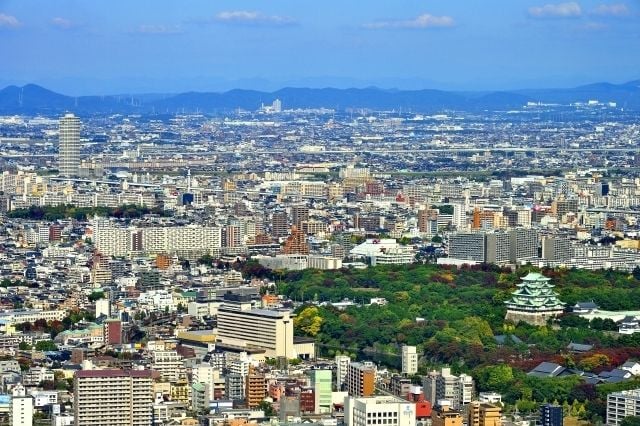
Considered how Japan is such a popular tourist destination, it’s a surprise to many when they learn that less than 10% of population are fluent in English; those who fluent are mostly residing in the major cities already, as well.
Furthermore, Japanese is considered one of the hardest languages for English speakers to learn, requiring around 2,200 hours of study.
So, unless you’re a linguistic prodigy, you might want to start brushing up on your Japanese before you arrive.
Finding a Home in Japan
One of the first things you’ll need to figure out is where to live. Japan offers a wide range of living options, from bustling city apartments to serene countryside homes.
The choice largely depends on your lifestyle preferences and, of course, your budget.
City Living
If you’re a fan of the hustle and bustle, making Tokyo your home is the obvious choice.
As the largest city in the world, with a population of 39 million, Tokyo offers everything from Michelin-starred restaurants to quirky themed cafes.
Popular expat districts like Minato and Shibuya are known for high-quality apartments, excellent public transport, and international cuisine options.
Living in either Tokyo or Osaka makes it easy to enter and leave the country as well. You’ll definitely need to commute awhile to a major international airport if you’re located in a rural area or smaller city.
However, living in Tokyo comes with a hefty price tag. The city was ranked the 9th most expensive in the world for expats, with the average rent for a three-bedroom apartment hovering around $2,713 per month.
If that sounds like too much for your wallet, consider other cities like Osaka, Kyoto, or Kobe, where the cost of living is lower but the quality of life remains high
Countryside Living
For those who prefer a quieter life, Japan’s countryside offers stunning natural beauty and a slower pace of life.
Regions like Hokkaido are famous for their mountains and winter sports, while the Okinawan islands boast beaches that rival those of Hawaii.
Living in the countryside also gives you a chance to experience traditional Japanese homes, complete with sliding shoji doors, tatami mats, and futons.
Houses in Japan’s rural areas are famously cheap. Foreign buyers are often enticed by ads showing large properties for sale at a fraction of the cost in their home country.
While these rural homes in Japan could be suitable for quiet retirement, keep in mind that nearly all of Japan’s small towns are going through population decline. Many rural homes also aren’t in
The nature of Japan’s real estate market, along with its constant earthquakes and tsunamis, means that real estate is a depreciating asset. It’s even true in places like Tokyo and Osaka, let alone in small towns!
As such, you shouldn’t buy property in rural Japan if you’re seeking profit or a low-upkeep asset.
Working in Japan
Japan’s work culture is infamous for its long hours and strict hierarchies. The concept of shushin-koyo, or lifetime employment, is still prevalent, meaning many Japanese workers stay with one company for their entire careers.
As an expat, you might find this work culture a bit intense, especially if you’re used to more flexible working conditions.

There certainly are job opportunities for expats in Japan. It also helps if you possess skills that are particularly needed in today’s job markets, or able to speak Japanese fluently.
The good news is that Japan offers a wide range of job opportunities for expats, particularly in sectors like IT, marketing, tourism, and foreign language teaching.
If you’re fluent in a language other than Japanese, your skills will be in high demand, as many Japanese companies struggle with foreign language communication.
The average salary in Japan is around $29,589, which is comparable to the UK but lower than countries like Germany and the United States.
However, entry-level and non-permanent jobs, which are popular among expats, tend to be highly paid, making Japan an attractive option even if you’re just starting your career.
Getting a Japanese Visa
To work in Japan as a foreigner, you’ll almost certainly need an appropriate visa.
Long-term stay in Japan becomes easier if you have Japanese family, but everyone else will need to either find employment or create a job for themselves.
There are several types of work visas available, including the general Japan Work Visa, the Highly Skilled Professional Visa, and the Japan Working Holiday Visa.
If you’re planning to start your own business, Japan also offers a start-up visa, which allows you to live in the country while you get your business off the ground.
Healthcare in Japan
Japan has one of the best healthcare systems in the world, and as an expat, you’ll be eligible for state healthcare after living in the country for more than three months.
The system is comprehensive, covering everything from major surgeries to mental health and dental care.
With that said, the government only covers 70% of healthcare costs, which means you’ll be responsible for the remaining 30%.
Many companies offer health insurance packages to cover this out-of-pocket expense, but you might also want to consider taking out private health insurance, especially if you’re not fluent in Japanese.
The quality of healthcare is excellent, though many doctors and nurses don’t speak English which can make communication difficult.
Education in Japan
If you’re moving to Japan with children, you’ll be pleased to know that the country has an excellent education system.
Japan ranks number one in the world for science and mathematics performance and ninth for reading comprehension.
Education is compulsory up to the age of 15, and most students go on to attend post-secondary education, making Tokyo the number one city in the world for university enrolment.

Unlike most other places in Asia where top schools are only available in the capital cities, Japan’s education system is consistent throughout the whole country, at least up until secondary school.
While state education is free, many expats choose to send their children to international schools, which offer curricula in English, French, and other languages.
Tokyo alone has over 50 international schools, making it easy to find one that suits your family’s needs. For higher education, Japan is home to several of Asia’s top universities.
A few of the best universities in Japan include Keio University, University of Tokyo, and Kyoto University.
Banking and Taxes
Once you’ve settled in, you’ll need to open a Japanese bank account. This is essential for receiving your salary and paying bills.
The process is relatively straightforward, but you’ll need to bring documentation like your passport, visa, and proof of address to the bank.
Keep in mind that you cannot open a bank account in Japan with a tourist visa, and must be residing here for any bank to deal with you.
Popular banks for expats include MUFG Bank, Mizuho Bank, and Sumitomo Mitsui Banking Corporation. Each of these rank among the nation’s largest, and all of them offer services in foreign languages.
When it comes to taxes, Japan has a relatively complicated system of both national and local taxes.
If you’re employed by a Japanese company, your employer will handle your income tax for you. Yet if you’re self-employed or working for a foreign company, you’ll need to file your own taxes by March 15 each year.
Japan also has a double taxation agreement with many countries – but not all – and so you probably won’t be taxed twice on your income.
Buying a House in Japan
If you’re planning to stay in Japan long-term, you might consider owning real estate.
Housing costs in Tokyo are about $10,000 per square meter in the city center – not cheap by any means. Osaka is roughly half that, and it’s even possible to buy real estate in smaller Japanese cities for only a few thousand dollars per sqm.
The good news is that foreigners are allowed to buy land and practically any other type of property in Japan. You’ll thus enjoy the same homeownership rights as Japanese citizens.
Foreign land ownership is rather uncommon in Asia, with only small handful of countries in the region allow it. Japan makes things relatively easy though by comparison.
Just keep in mind that buying property doesn’t grant you any additional rights or privileges, such as permanent residency or citizenship.
You don’t automatically have the right to stay in Japan just because you own property here!
Should You Become an Expat in Japan?
Living in Japan as an expat is an adventure like no other. From vibrant cities to the tranquil countryside, Japan truly offers something for everyone.
But it’s important to be prepared for the challenges, whether you’re navigating the work culture or mastering the language.
With the right preparation and mindset, you’ll find that Japan is a rewarding place to live, work, and explore.
Are you ready to take the plunge and move to the Land of the Rising Sun? Just remember to take your shoes off at the door—this is Japan, after all.
FAQs: Living in Japan
Can I Move to Japan Without a Job?
Yes, but it can be challenging. Moving to Japan without a job typically requires you to have a long-term visa, such as a student visa, or to be financially independent.
Japan also offers a start-up visa for entrepreneurs looking to establish a business in the country. However, without employment or a specific visa, it is difficult to stay long-term unless you have family ties or significant financial resources.
How Much Does a House in Japan Cost?
Housing prices in Japan vary significantly depending on the location. In Tokyo, prices can reach around ¥1 million (approximately $10,000) per square meter, while in smaller cities or rural areas, prices can be much lower. For example, properties in rural areas can sometimes be purchased for just a few thousand dollars per square meter.
Yet keep in mind that real estate in Japan tends to depreciate over time, and the market is not known for high appreciation rates.
Can Foreigners Buy Property in Japan?
Yes, foreigners can buy property in Japan, including both land and houses. Japan is one of the few countries in Asia where foreigners enjoy the same property ownership rights as local citizens.
However, owning property does not grant you residency or any additional immigration privileges, so you will still need a valid visa to live in Japan.
What Language Do They Speak in Japan?
The official language of Japan is Japanese. While English is taught in schools and used in some business settings, only about 28% of the population speaks English at any level, and less than 10% are fluent.
If you plan to live in Japan, learning Japanese will significantly improve your experience and ability to navigate daily life.
Can Foreigners Live in Japan Without a Visa?
No, foreigners cannot live in Japan without a visa. If you plan to stay for more than 90 days, you will need a long-term visa, such as a work visa, student visa, or family visa.
Japan also offers a start-up visa for entrepreneurs. Short-term stays for tourism or business trips typically allow for a 90-day visa-free entry, depending on your nationality.
How Can I Move to Japan?
To move to Japan, you will need to secure a long-term visa, which is typically tied to employment, education, or family ties. If you plan to work, you will need a job offer from a Japanese company that can sponsor your visa.
Alternatively, you can apply for a student visa if you enroll in a Japanese educational institution or a start-up visa if you plan to open a business. Once you have a visa, you can begin the process of relocating, which includes finding housing, setting up utilities, and registering with local authorities.

